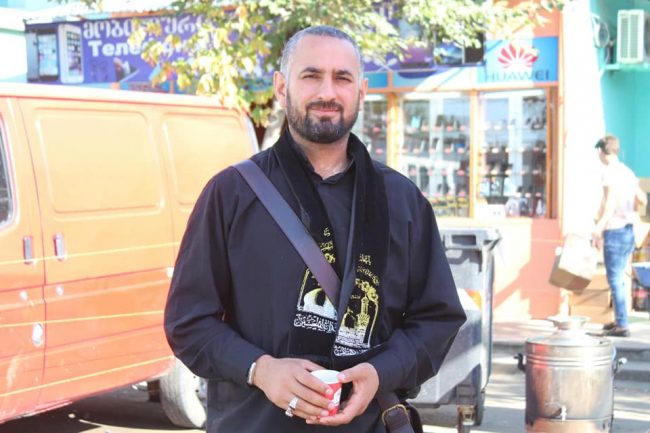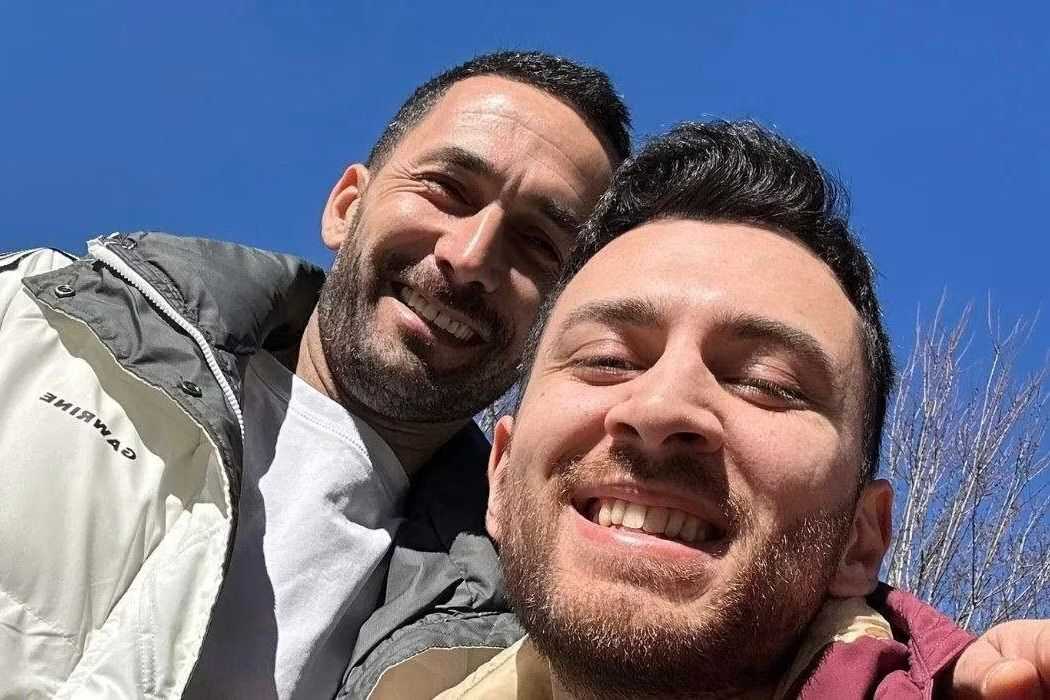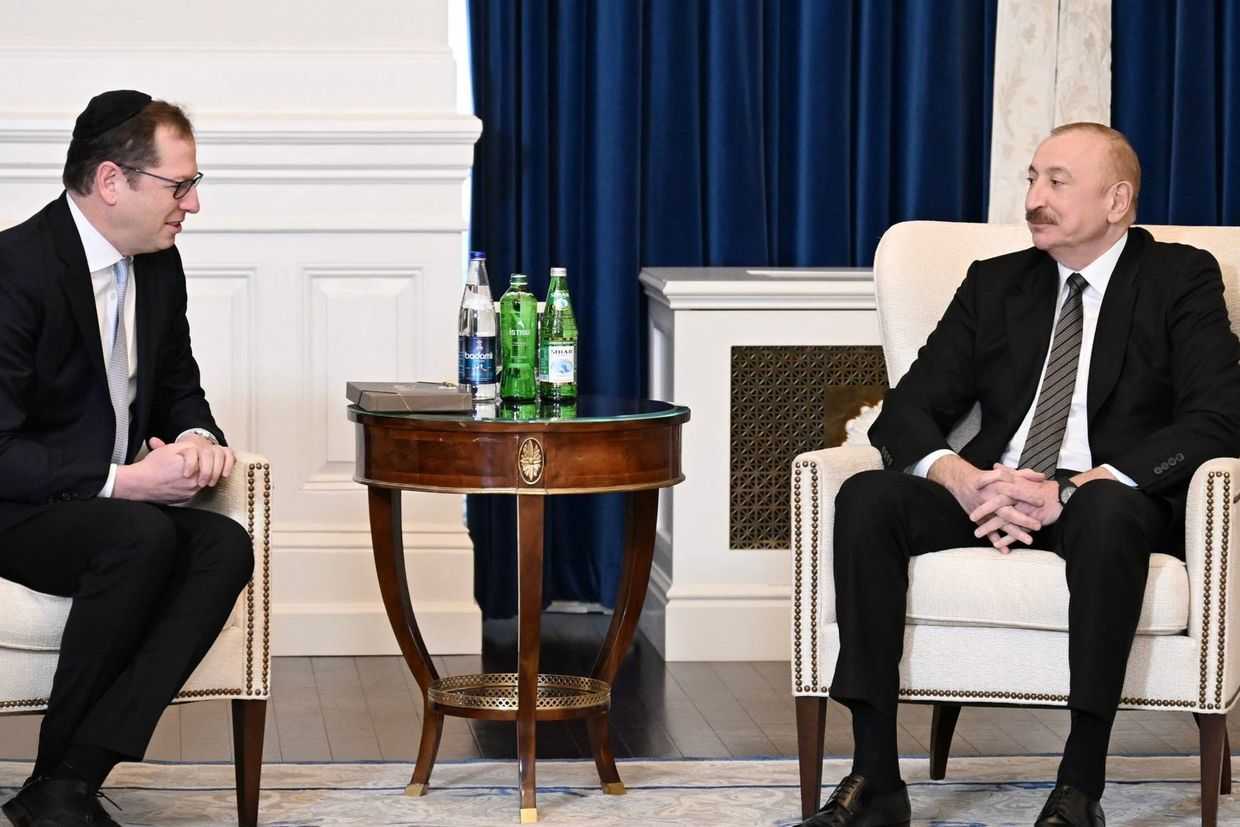

Georgian Shia Muslim leader and frequent government critic Mirtaghi Asadov was arrested in Azerbaijan last week under unclear circumstances. Local rights groups have questioned the Azerbaijani Government account of his arrest and demanded Georgia intervene.
On Wednesday, over 14 Georgian rights groups, including GYLA, EMC, and TDI, urged Tbilisi to ‘immediately take all measures’ to ensure Azerbaijan grants Asadov a fair trial, access to a lawyer and family members, and his protection from inhuman treatment during his pre-trial detention.
Asadov, a Georgian citizen, is an active Muslim community leader who has been highly critical of the Georgian government. He chairs the Supreme Religious Administration of Muslims of All Georgia, a Shia Muslim group.
On Friday, Georgia’s Foreign Ministry told news site Liberali that the Azerbaijani authorities had not notified them about Asadov’s arrest, but that the Georgian Consulate was ‘in contact with the family and is working on the issue’.
The Georgian Public Defender’s Office told OC Media that they had communicated with their Azerbaijani counterpart, who recently visited Asadov in detention.
They said they will continue to work with the Georgian Foreign Ministry and to monitor the situation.
Georgia’s Interior Ministry did not immediately reply to a request for comment.
Contradictory stories
According to the Azerbaijani authorities, police arrested Asadov on 8 November on charges of petty hooliganism and disobeying police, after he was confronted loudly cursing on his phone on Aliyadee Street, in Baku’s Narimanov District.
Authorities said he had admitted his guilt, and Narimanov District Court had placed him under 30-day pre-trial detention.
The Georgian rights groups said they had doubts about the official version of events. Asadov’s family claim he was actually detained on 7 November, while crossing the Red Bridge border checkpoint between Georgia and Azerbaijan.
The family said the taxi driver who transported Asadov and his companions, had told them that after waiting for an hour, Azerbaijani police officers told him they would take Asadov to Baku themselves.
The rights groups said the official account ‘does not correspond to reality’, and that Asadov was in police custody since 14:00 on 7 November.
Asadov reportedly gave up his Azerbaijani citizenship about two years ago but regularly visited family members residing in Azerbaijan.
Asadov’s wife, Shahana Hajiyeva, who lives in Baku, claimed Asadov had contacted her and informed her about his arrest on 7 November, and later became unreachable.
For four days afterwards, the family did not know his whereabouts and failed to receive any information from the Georgian interior and foreign ministries or the Georgian Public Defender’s office.
On 12 November, Hajiyeva informed the Georgian Embassy in Baku about the problem.
On the same day, police gave Asadov’s lawyer a notice of his arrest.
‘We still know nothing about his health or his treatment at the time of detention or afterwards. Considering the numerous international reports on systematic practices of inhuman and degrading treatment and impunity in Azerbaijani prisons, this situation is alarming and extraordinary’, read the joint statement from Georgian rights groups.
Georgia’s Evangelical Faith Church and Evangelical Baptist Church joined calls for the Georgian Government to find Asadov and ensure his peaceful return to Georgia.
On Thursday, supporters launched an online petition demanding the Georgian government intervene.
‘Asadov is a citizen of Georgia. However, until now, the Georgian government has done nothing to support him’, reads the petition.
Government critic
Asadov has been actively critical of the Georgian Government over their religious policy towards Shia Muslims, the majority of whom are ethnic Azeris.
The Supreme Religious Administration of Muslims which Asadov heads was among the eight plaintiffs who successfully sued the government over their policy of providing preferential tax and property privileges to the Georgian Orthodox Church.
On 3 July, Georgia’s Constitutional Court ruled that articles of the tax code exclusively exempting the Orthodox Church from paying VAT when building, renovating, and painting churches were unconstitutional, as they constituted discriminatory treatment of religious groups by the state.
The groups also successfully challenged state property laws that allowed only the Georgian Orthodox Church to be granted ownership of state property free of charge.
Asadov was also a vocal critic of the Administration of Muslims of All Georgia (AMAG), which is unrelated to the Supreme Religious Administration of Muslims of All Georgia.
AMAG, which receives financial support from the Georgian government, claims the power to choose two Muftis (Sunni Muslim leaders) as well as a top Shia leader — a Sheikh in Georgia.
A number of Sunni Muslim groups have also been critical of AMAG for their attempt to represent all Muslim communities in Georgia within one organisation.
[Read from Maia Urushadze and Bennet Clifford on OC Media: Georgia’s Muslim authority should represent the interests of Georgia’s Muslims, not the government’s]
Asadov campaigned against a policy supported by the Georgian State Agency for Religious Issues that limits compensation for damages incurred by Soviet anti-religious policies to muftiates, representatives of Sunni communities.
Human rights and religious freedom advocacy groups like the Tolerance and Diversity Institute and EMC have been critical of the Agency for their opaque and selective restitution of religious property, accusing them of showing favouritism towards the Georgian Orthodox Church.
Asadov has been passionate about reforming Georgia’s approach to regulating construction and ownership of religious buildings in the country, including the Imam Ali Mosque in Marneuli, a southern town with a majority ethnic Azerbaijani population.
In 2014, SARI facilitated the transfer of the Mosque to AMAG, leaving local Shia community members unhappy.
On 15 November, SARI released a statement, denying allegations the Georgian authorities may have benefited from Asadov’s disappearance.









